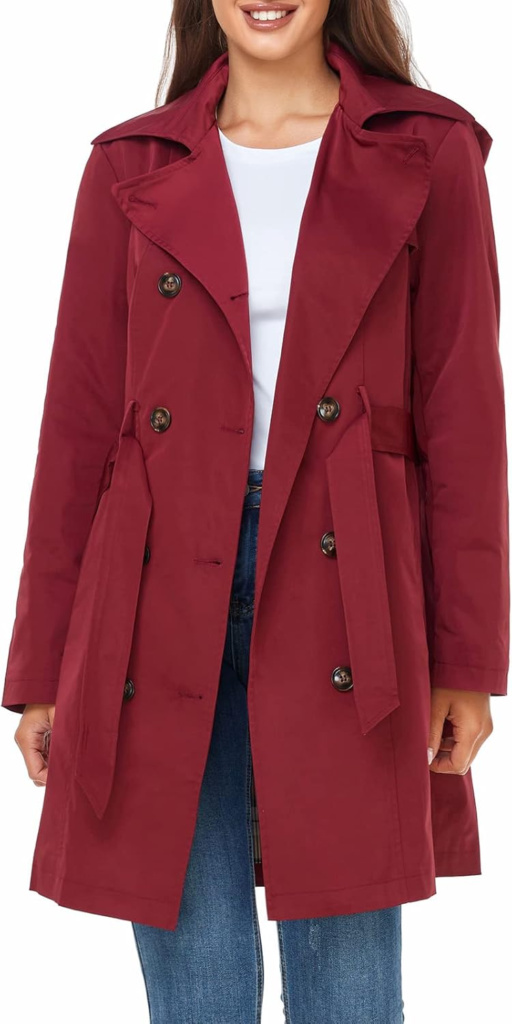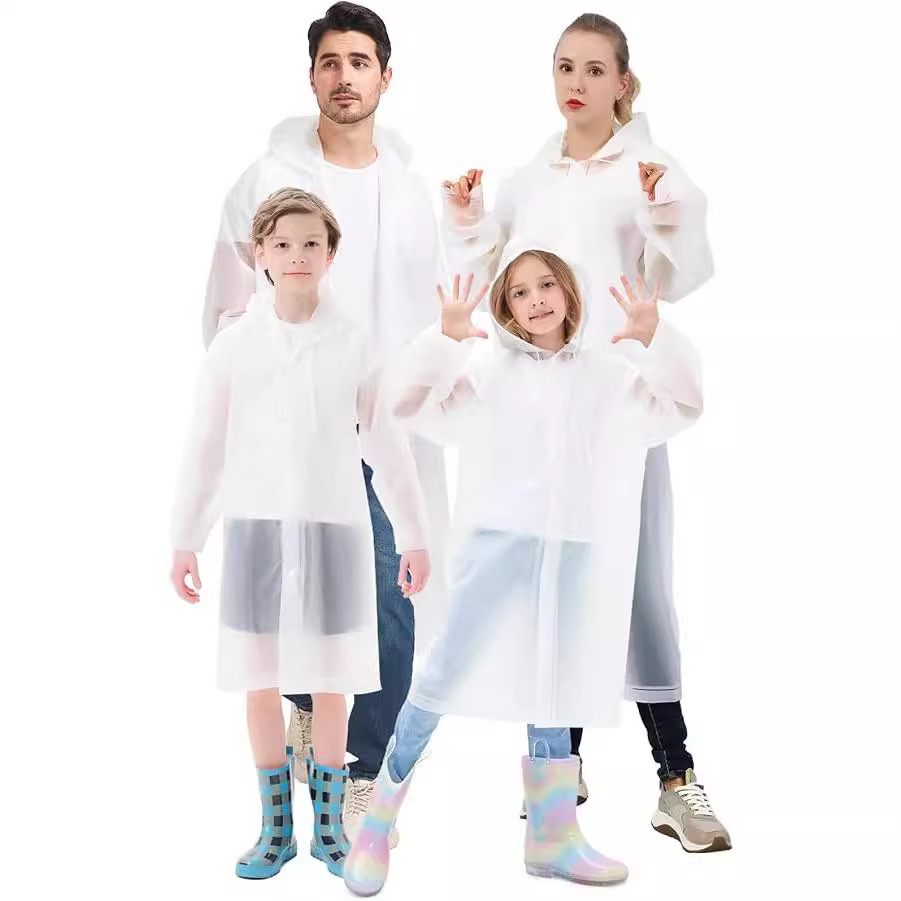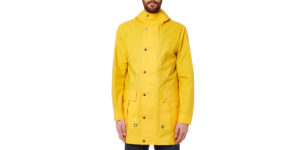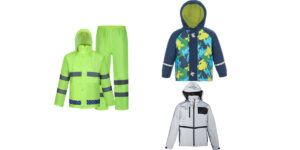When buying a best raincoat with waterproof coat, one of the most important considerations is the durability of its waterproof coating. Manufacturers for raincoat with waterproof coat use different types of coatings to make raincoats water-resistant or completely waterproof. Two of the most common coatings are PU (Polyurethane) and PVC (Polyvinyl Chloride). However, these coatings can wear off over time, affecting the raincoat’s effectiveness. In this blog, we will discuss the different types of coatings, their lifespan, and how to maintain your raincoat to ensure it lasts longer.

Table of Contents
ToggleTypes of Coatings: PU vs. PVC
Manufacturers and suppliers for raincoat with waterproof coat in China typically offer two main types of waterproof coatings: PU and PVC.
PU (Polyurethane) Coating
- Polyurethane (PU) is a flexible, lightweight material commonly used for waterproof coatings.
- PU-coated raincoats offer a high level of breathability and comfort.
- This coating is ideal for lightweight raincoats and light raincoats, where flexibility and comfort are key.
PVC (Polyvinyl Chloride) Coating
- PVC is a thicker, more durable material that offers superior waterproofing.
- Heavy raincoats often use PVC because it provides excellent protection from heavy rain.
- PVC raincoats are less breathable than PU-coated raincoats, but they are better at handling extreme weather conditions.
Does the Coating Wear Off?
Over time, raincoat coatings can degrade and wear off. This can happen for several reasons, especially if the quality raincoat is not made with high-quality materials or if proper care is not taken. Coatings can break down from exposure to harsh elements, wear and tear, or poor manufacturing processes.
Why Does the Coating Wear Off?
Poor Quality Materials: Branded raincoats or quality raincoats tend to use better coatings that last longer. On the other hand, cheaper raincoats may use low-quality coatings that wear off faster.
Frequent Exposure to Harsh Elements: Heavy raincoats that are exposed to frequent rainfall, UV light, and harsh weather conditions tend to degrade faster. The more often the raincoat is worn in extreme conditions, the faster the coating wears off.
Abrasion: Regular use, especially in rough conditions, can cause friction that leads to the breakdown of the waterproof coating.
Improper Care: Raincoat coatings can wear off faster if the raincoat isn’t cleaned and stored properly. For example, washing a waterproof raincoat too frequently, using harsh detergents, or drying it incorrectly can cause the coating to deteriorate.
What is the Lifespan of the Coating for the Raincoat?
The lifespan of a raincoat with waterproof coat largely depends on the material of the coating and the level of care it receives.
PU Coating Lifespan
- PU-coated raincoats typically last between 1 to 3 years, depending on usage.
- These coatings wear off more quickly than PVC coatings because they are thinner and more breathable.
- Lightweight raincoats or light raincoats made with PU coating are less likely to last as long as heavy raincoats made with PVC.
PVC Coating Lifespan
- PVC-coated best raincoats last longer, usually 3 to 5 years or even more with proper care.
- They provide strong waterproof protection, which makes them ideal for heavy rain or extreme conditions.
- However, PVC coatings are heavier and less breathable, which can lead to discomfort in warm or humid climates.
How to Maintain and Extend the Lifespan of the Coating
To keep your raincoat with waterproof coat in top condition, it’s important to follow proper care guidelines. Here are some tips to help extend the lifespan of the coating and prevent it from wearing off prematurely:
1. Wash Gently and Less Frequently
- Overwashing can strip away the waterproof coating. Only wash your raincoat with waterproof coat when it is necessary.
- Wash it on a gentle cycle and avoid using harsh detergents that can damage the coating.
- If your branded raincoat has a PU or PVC coating, use a cleaner specifically designed for waterproof clothing.
2. Avoid Fabric Softener
- Fabric softeners can damage the waterproof coating. Never use fabric softeners when washing a waterproof raincoat.
- The softeners may make the coating break down and reduce its effectiveness.
3. Air Dry
- After washing, avoid using a dryer. High heat can cause the coating to degrade faster.
- Instead, air dry your raincoat in a shaded area. Hang it up to prevent any creases or stress on the material.
- Drying in the sun can cause the material to break down, especially for PVC raincoats.
4. Reapply Waterproof Coating
- If the coating starts to wear off, you can restore it by applying a waterproofing spray.
- Choose a spray that is compatible with the material of your raincoat (e.g., PU or PVC).
- Reapplying waterproofing agents once a year can help maintain the effectiveness of the raincoat.
5. Store Properly
- When not in use, store your raincoat with waterproof coat in a cool, dry place away from direct sunlight.
- Avoid folding it tightly. Hanging it or storing it loosely helps maintain its shape and prevents wear on the coating.
6. Repair Small Damages
- If you notice any small tears or holes in the raincoat with waterproof coat, repair them immediately.
- Small breaches in the coating can allow water to seep in, causing further damage over time.
- Use specialized waterproof patch kits or contact manufacturers for raincoat with waterproof coat repairs.
Choosing the Right Raincoat
When looking for a raincoat with waterproof coat, consider your needs carefully. Choose a heavy raincoat with PVC coating for maximum protection in extreme conditions. If comfort and breathability are important, opt for a light raincoat with a PU coating.
- Quality Best Raincoat: Invest in a quality raincoat from reliable manufacturers and suppliers for raincoat with waterproof coat in China. High-quality coatings last longer and provide better protection.
- Branded Raincoat: A branded raincoat may cost more, but it often uses superior materials and has better durability.
Conclusion
A best raincoat with waterproof coat offers excellent protection against rain, but the durability of the coating depends on several factors. The type of coating (PU vs. PVC), how often the raincoat is used, and how well it is maintained all affect its lifespan. While PVC raincoats offer long-lasting protection, PU-coated raincoats are more breathable and comfortable. With proper care, you can extend the life of your raincoat and ensure it continues to provide reliable protection against the elements.









